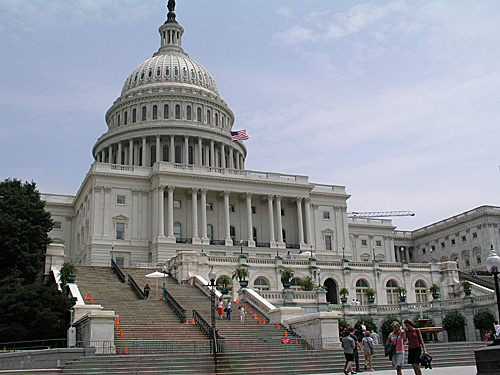
Amazon leads criticisms of UPU terminal dues system before Congress

E-commerce giant Amazon has called on Congress to help encourage “fair” competition between domestic shippers and those shipping items into the US from abroad. The company’s vice president for global public policy, Paul Misener, testified before a subcommittee hearing of the US House of Representatives yesterday to claim that a disparity in domestic and international shipping rates at the US Postal Service was discriminating against businesses shipping domestically.
Misener said that bilateral shipping agreements between USPS and some foreign postal services meant the Postal Service could charge “much lower rates” for delivering foreign shipments once they arrived in the US compared to shipments originating in the US.
“This disparity discriminates against American businesses shipping domestically,” Misener claimed. “To allow fair competition in shipping to U.S. consumers and equitable treatment of American businesses, the international agreements must be reformed.”
The Amazon VP expressed particular concerns about arrangements between USPS and China Post, calling for “two problematic compensation arrangements between them” to be reformed — referring to the postal operators’ bilateral agreement and the terminal dues system put in place by the Universal Postal Union.
The UPU’s terminal dues system means that China Post pays “much less” for USPS to deliver items in the US than USPS pays for delivery in China, Misener explained. Meanwhile, he said domestic US delivery rates at USPS now exceed international termination rates.
He suggested that the “disparity” was affecting the small business third-party sellers who generate around 40% of Amazon’s total sales by using its marketplace platform.
“Amazingly, when combined with extremely low bulk shipping rates from China to U.S. transfer points, shipments from China to points throughout the United States are often cheaper than shipments entirely within the United States. The resulting competitive disadvantage to American businesses of all sizes is as unfair as it is illogical,” Misener said.
The Amazon VP warned that the UPU was unlikely to be able to reform its terminal dues system any time soon, because “the majority of countries’ postal operators” benefit from the current system, but he pressed for the US to “reinvigorate” attempts at UPU reform nonetheless.
“Foreign postal operators could remain handsomely compensated for deliveries within their countries, so long as sellers in those countries do not receive an unfair advantage when delivering through the USPS in the United States,” he stated.
USPS
Also testifying before the subcommittee on Government Operations yesterday, the US Postal Service backed the need for the UPU terminal dues system to be improved.
Randy S Miskanic, acting chief information officer and executive vice president at USPS, said there remained a “critical need” to improve cost coverage for inbound international mail within the United States.
Miskanic said that while the Postal Service could form bilateral agreements with individual countries to adjust delivery rates, the UPU’s terminal dues system provided the base of negotiations, and that “in some cases, there is little bargaining room available to significantly increase cost coverage”.
“The Postal Service will continue to encourage the UPU and State Department to support the principle of cost-based, country-specific terminal dues, and advocate for positions that move towards better cost coverage for all inbound UPU mail flows,” he said.
Equality
Last year the US postal regulator commissioned a report from Copenhagen Economics to look at the issue of terminal dues.
The report published by the Postal Regulatory Commission at the end of September stated that different terminal dues were applied to universal postal service providers compared to private sector rivals, which distorts competition among first-mile delivery operators. It also found terminal dues set below the level of last mile activities, distorting competition among delivery firms.
The report said the best solution for all would be a system where domestic deliveries and final delivery of cross-border items were the same. An aid programme might help developing countries where this could not be achieved, the report suggested.
Robert Taub, acting chairman of the Postal Regulatory Commission, told the Congressional subcommittee yesterday that the private sector had also submitted similar proposals to the State Department calling for a system of non-discriminatory, country-specific terminal dues based on domestic rates to be introduced by the UPU in its 2020 Congress.
Taub said of the Copenhagen Economics report yesterday: “Its key solution — similar prices for similar services regardless of country of origin or status as private or public operator — shows that terminal dues do not have to remain an intractable problem.”













